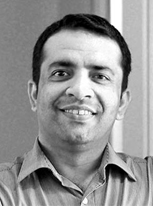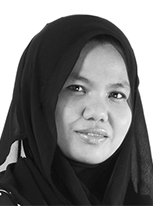WIEF SOCIAL ENTERPRISE – “Rebuilding Social Enterprise”

COVID-19 has left a trail of disruption. Beyond the health and human loss caused by the pandemic, it has also triggered the most severe economic crisis in a century with its impacts unevenly felt across nations, communities, and economies.
It has become clear that the most vulnerable members our communities were hit the hardest. The World Bank estimated that 100 million people have been pushed into extreme poverty due to COVID-19. And the ILO estimated that, as a result of the economic crisis created by the pandemic, almost 1.6 billion informal economy workers – the most vulnerable in the labour market – have suffered massive damage to their capacity to earn a living.
The pandemic has also put a spotlight on the invaluable role played by social enterprises in their communities. Throughout the pandemic, social enterprises have made important contribution in areas such as mental health, education, employment and social inclusion.
Despite COVID-19 restrictions many social enterprises have evolved and adapted their businesses, often moving online, to ensure they provide the right support to the people at the heart of their services. They leveraged the right supports at the right time to improve their sustainability and future opportunities, while deepening the impact they have in delivering on their individual social objectives.
This webinar will delve into the various challenges and opportunities faced by social enterprises, how they rebuilt and emerged after the pandemic as well as the role of governments to encourage, prioritise, and open space for social enterprises to rebuild and thrive.
UN Secretary General António Guterres remarked, “Everything we do during and after this crisis must be with a strong focus on building more equal, inclusive, and sustainable economies and societies that are more resilient in the face of pandemics, climate change, and the many other global challenges we face.”
The programme will discuss:
- How social enterprises faced the challenges arising from the COVID-19 pandemic and contribute to the health, social and economic recovery of their communities?
- How social enterprises can rebuild their organisations and chart a pathway in a post-COVID world whilst redefining business in the context of social good?
- How to raise awareness of the wider social enterprise sector across the general public?
- What can social entrepreneurs do to increase their chances of achieving sustainability and perhaps even profitability?
- How can policy makers and other stakeholders leverage on the impact of social enterprise as a transformational force to drive social and environment consciousness?
Key Takeaways
- Learn the current landscape of Social Enterprise ecosystem, post pandemic.
- To restore the balance of community, equity and care for the planet as key elements of our economy.
- As a means for Social Enterprise to be more resilience when facing crisis.
- Ways of closing the gap that drives in VC funding and policy making.
| 28 February 2022 | |
| 3.00 PM – 3.45 PM |
Discussion on Rebuilding Social Enterprise The session will discuss:
|
| 3.45 PM – 4.00 PM | Q&A session |
Download Presentation (Rashvin)
Download Presentation (Ren Wan)
DISCLAIMER / NOTES:
- The Organisers reserve the right to alter the content and timing of the programme in the best interest of the webinar and is not responsible for cancellations due to unforeseen circumstances.
- Programme as of 14 January 2022.

Rashvin Pal Singh
Group CEO
Biji-biji Initiative
Malaysia
Rashvin Pal Singh is the Group CEO of Biji-biji Initiative, one of Malaysia’s pioneering and award-winning social enterprises that champions sustainability. Biji-biji Initiative comprises subsidiaries across a few industries such as ethical fashion and circular economy solutions. In 2019, Biji-biji won the Common Objective Leadership Award in the United Kingdom and in 2018, they were recognised as the Social Enterprise of the Year at the Sustainable Business Awards.
Rashvin was a panellist at the World Social Enterprise Forum 2019 in Addis Ababa and selected as an Obama Leader for the inaugural Asia Pacific cohort in 2020. He serves as Vice President of the Chamber of Social Entrepreneurship Development Malaysia.
Rashvin graduated with an accounting and finance degree from Bristol Business School. He spent four years of his early career in the corporate world as a manager at the Advisory Division of PwC Malaysia.

Ren Wan
Co-founder & CEO
JupYeah & LookMatters
Hong Kong
Ren Wan is Co-founder of JupYeah and LookMatters as well as an advocate of environmental issues, green living and slow fashion. Ren Wan established herself as a magazine editor and worked at WestEast Magazine as managing and contributing editor at MING Magazine. In 2011, she pursued a postgraduate diploma in sustainable development in University of London and co-founded JupYeah, which promotes swapping and raises awareness on overconsumption and waste. In light of excessive fashion consumption and waste in Hong Kong, JupYeah launched LookMatters, a clothing brand in 2014 to promote second-hand fashion.

Anshu Gupta
Founder Director
Goonj
India
Anshu Gupta graduated in communications and economics and started his career as a freelance journalist. He founded Goonj in 1998 to highlight some basic but ignored needs of people on the development agenda, using clothing as a metaphor.
Goonj has grown notably by turning urban waste into a tool to trigger large scale work on various rural development issues. An Ashoka and Schwab Fellow for entrepreneurship, he has built a trash-based economy by creating barter between efforts of rural communities and urban surplus material as two new currencies. Goonj has done massive disaster relief and rehab work in India, turning disasters into opportunities to reach resources and attention to the most ignored communities.
Listed by Forbes magazine as India’s most powerful rural entrepreneur, Anshu and Goonj have received recognitions including Ramon Magsaysay award, World Bank’s Development Marketplace award, Changemakers Innovation award and Jamnalal Bajaj Award for Fair Business Practices.

Nurfarini Daing
Co-founder and CEO
Youth Trust Foundation
Malaysia
Nurfarini Daing is the Co-founder and CEO at myHarapan which was established in 2010. It has engaged and developed over 26,000 Malaysian youths and funded over 140 social initiatives. It’s also a research partner of the Centre of Asian Philanthropy and Society in Hong Kong which is currently developing a Doing Good Index in, and for, 15 economies.
Nurfarini garnered 18 years of startup experience including business development, training and coaching for SMEs as well as unemployed graduates through past employments such as Multimedia Development Corporation of Malaysia. She has received many awards including the Social Innovation Leadership Award by World CSR Congress, India, and others such as the Women Icons Malaysia by the Business Excellence and Research Group (BERG) Singapore.
She graduated from the University of Warwick, United Kingdom, in accounting and finance.